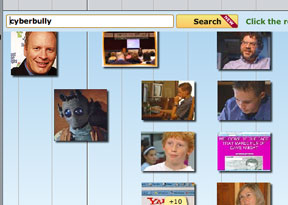Open yourself up to enough sources and contrasting perspectives will soon become evident.
My present “read” (actually listen, but that sounds funny) is “What would Google do?” (Jeff Jarvis). Jarvis, a real Google fanboy, sets out to demonstrate that the values and techniques employed by Google could successfully modify various trades and services. Toward the end of the book, Jarvis gets to higher education.
GoogleU – typical statements:
- My children should not be limited to the courses at an institution.
- Education continues past 21.
- Blog or perish (I wish).
- Value more in your portfolio of work rather than in the degree.
- Connections to enable job opportunities (networks) can be found online.
- In the real world, the tests are all open book.
- Connecting those who want to know with information.
You get the idea. I can’t take the time to address what I think of each of these concepts. You have to pay for that type of analysis. I am not certain that institutions of higher education will not be forced into change by Google and by specialized online education businesses. The question is whether these changes will represent improvements. I do think some competition is a good thing – the concern I have is what scope will be considered in pushing toward improvement.
Education businesses offer an example of what concerns me. I refuse to call them colleges, but that is the point isn’t it. A business model may be more flexible and responsive to the needs of the customer. So, if education as a business is better, why not describe the coming alternative as educational businesses vs. traditional colleges and universities. Actually, we have had educational businesses for some time, but vocational or technical colleges kept trying to become something else. What was wrong with having the focus of a more direct connection to a vocation? My actual concern is that educational businesses are not replacements for colleges and universities, but rather peck around the edges to compete where there is easy money to be made. That seems a bit unfair, but the priority of the business mentality. I see higher education as a complex system addressing multiple constituencies and meeting multiple needs. Any given service or group might perhaps be serviced more inexpensively in some other way, but that is not necessarily the idea. Rather, what is best way for a society to accomplish the wide range of services provided by existing institutions? Society sometimes needs to take a broader view. You want to teach large classes, but not provide advanced training. That is a narrow, short term view. You want to service the motivated, capable learners, but not those who benefit from counselors and learning service professionals. That is the narrow, short term view. You want to outsource research to special institutions that compete for external funding sources. Actually, that is pretty much already the way it works. In addition, colleges and universities address research topics that may have little apparent immediate benefit and mentor undergraduates and graduate students as future professionals in the process. That is the long term view.
College profs probably understand better than anyone that learning does not end at 21. In the unique world within which we must compete, no one is relying on his/her original knowledge. Skills perhaps, but not knowledge. BTW – this is why research expectations make some sense in certain categories of institution. If I only had to teach, I could rely on my capabilities to read the book and investigate online ahead of my students. I would propose that the students in my classes deserve an instructor with greater depth of experience and background in at least some of the topics we explore.
I propose that all of us believe we have insights into the limitations of occupations other than our own. We tend to see conspiracies and self-protective mechanisms. Lawyers, car salespersons, insurance companies, college professors, physicians – overpaid, charging for unnecessary services, playing the system to take advantage of those with few options, etc. Those in such professions simply respond that those who do not need to meet the day to day realities of the demands of the profession do not understand. College profs, at least the vast majority, actually do work more than 6 hours a week. I guess it depends on how you define work. The 30 second, $30, “check” by my dentist when I get my teeth cleaned probably helps pay for the office facilities and some pro bono work that he does. Perhaps that $30 allowed some time to keep up on new advances it filling my cavities. We typically support a range of things when we engage with most areas of skilled performance.
I am skeptical of completely self directed learning, not that it is not possible, but that it is not probable. I understand Jarvis’ proposal that we don’t need required courses if we have required certification testing (my interpretation). I suppose, but this to me sounds like pure speculation based on a fairly naive view of human nature. We pretty much have such opportunities now – they seem very seldom used. College students can CLEP out of basic courses. One could, for example, go to iTunes U and listen to one of the series of lectures covering “Introduction to Psychology”, pay your money (not sure what it is anymore, but not that much) and see if you could pass the CLEP exam. Supposedly, these lectures are from some of the most prestigious institutions in the country (they are) and taught by great profs (hmm – listen and draw your own conclusions). I can’t figure out why each Fall my class is still full and students pay tuition. You really think these students are not interested in saving a thousand or so? maybe students already understand that it is really about more than passing the test.
The Jarvis book cites a blog post from W. Richardson addressed to his children – you don’t have to go to college if you do not want to. There are options for preparing yourself for life. Of course. So, if you are a parent or a high school graduate considering your future, what course of action should you pursue? I would agree that there are many tremendously important life lessons one learns in other ways. Travel and exposure to all it brings is tremendously important in my book. Connections with people who do meaningful things is important. Many of us, college profs included, do what we can to provide such opportunities to our children. Read the book “Rich dad, poor dad” – want to bet on the category the Richardson family would fit? Want to bet on whether the kids will go to college? I would propose that those with money do all of these things. If you earn 30K a year, what would be the best thing you could do for your recent high school graduate?
Today, Sec. of Education Duncan released a statement accompanying the release of the 2009 “Conditions of Education“. In commenting on the importance of a college education and doing what can be done to give capable students access to a college education, Sec. Duncan stated:
It appears we are playing for high stakes here.
58 total views



You must be logged in to post a comment.